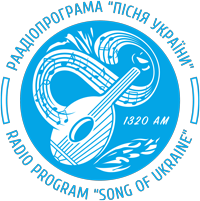I struggle with wordiness in polemics here, in the far west, as well as in my native lands. I have seen more than once how one can argue for an hour with a like-minded person!, just because of a different interpretation of the word “nationalism”.
First, Ethnos, Natio and Narod are synonyms, only in three different languages, Greek, Latin and Ukrainian. Giving the word Natio/Nation/Nation some new artificial meaning harms modern political discourse as well as the understanding of literature and history of different times and lands. And, as if by no means a miracle, this serves imperial narratives.
Narod/Nation is a people united by culture and language; This is a family with a capital letter (and language, as a carrier of information and thus culture, is an extremely important unifying factor.) A nation is not a purely genetic phenomenon, but a phenomenon at the cultural level.
Nationalism is love for, devotion to, and service to a certain people/nation. (Interestingly, a nationalist does not even have to be a member of this nation, just as a fan of FC (football club) “Dynamo” does not have to be a member of FC “Dynamo”!).
State (Country) / Patria in Latin is a political entity on a given territory. (For any reason and in any way).
Patriotism is love for, devotion to, and service to a certain state (party). (According to this understanding, someone could be a patriot of the USSR, but not a nationalist of the USSR).
An empire is a state formation in which there are several peoples/nations, usually annexed by force; which exists for the benefit and service of the elite or industrial interests of one of these peoples/nations.
Imperialism is love for, devotion to, and service to a certain empire. As a rule, it is a desire to annex additional lands and peoples.
From this it is clear that it is precisely pathological patriotism that develops into imperialism; and nationalism, as love for a certain people, not a state, will be satisfied with its own national state, or, at least, full national autonomy in a given state.
Nationalism and nations are precisely the forces that destroy empires.
Unfortunately, in modern polemics, nationalism is deliberately confused with imperialism, and the words empire and imperialism are rarely used. Such verbosity is only in favor of empires, and not only Moscow’s.
Today, a new concept of a “political nation” has appeared. This is nothing more than citizenship, and “political nationalism” is nothing more than patriotism. For a nation-state, this concept is not needed. And for a stateless state or an empire, it is a form of verbosity to provide “nationality” where it does not exist or exists at a very early stage of formation. Luxembourger and homo-sovietikus are two examples of such “political nationality.” The expression “citizen of Luxembourg” or “citizen of the USSR” is much more accurate. Such an expression allows for clarification as “citizen of Luxembourg of German nationality” or “citizen of the USSR of Bashkir nationality”, or as in my case, “citizen of Canada of Ukrainian nationality”.
Mirko Petriv
Head of the LUK department in Vancouver










